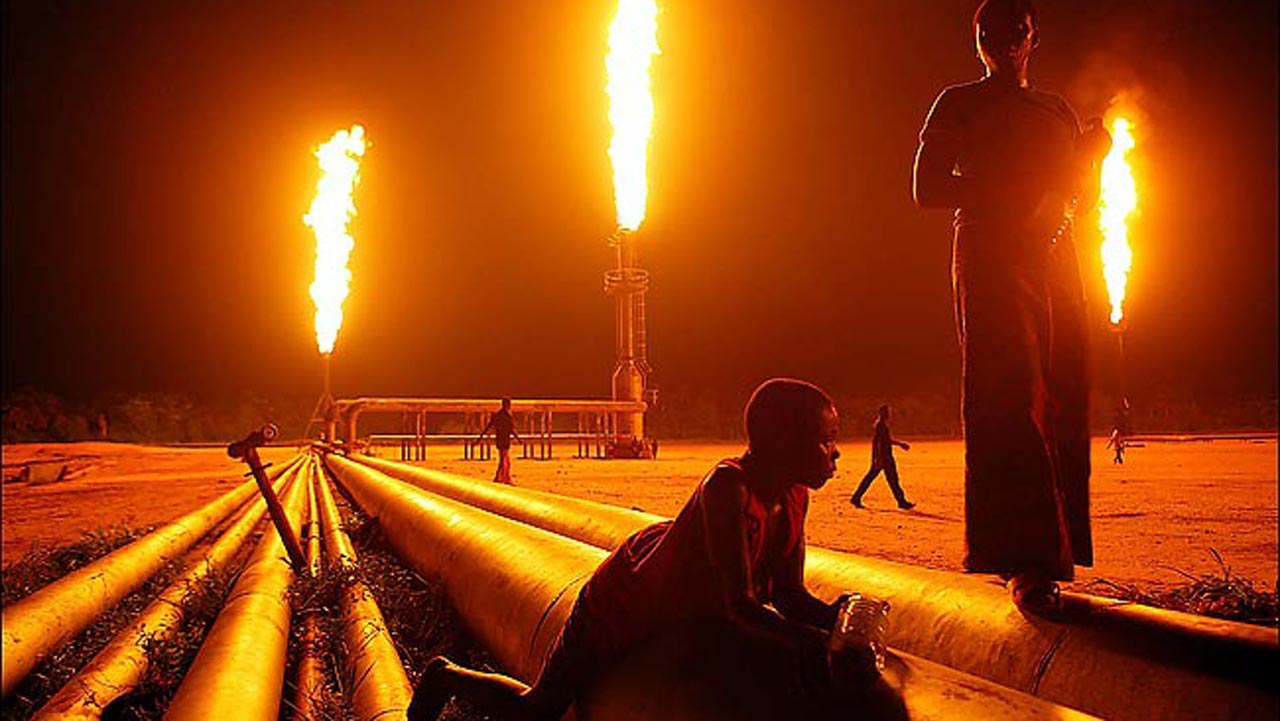
A total of $779.9 million translating to N281 billion was lost by Nigeria in six months, as oil and gas companies operating in the country flared 222.8 billion standard cubic feet (bscf) of gas from January to June 2020.
This was contained in a document obtained by iBrandTV from the Federal Government’s gas flare tracker.
According to the gas flare tracker published by the National Oil Spill Detection and Response Agency (NOSDRA), iBrandTV gathered that majority of the flares gas were from onshore oil and gas sites, which accounted for 60.95 per cent of total gas flared, while offshore sites accounted for 39.05 per cent of the total.
The report also noted that 135.8 billion standard cubic feet of gas was flared on the onshore sites in the six months period, while 87 billion standard cubic feet of gas was flared offshore.
In addition to the N281 billion loss, the report also noted that the fine accruable to the country from the flaring of 222.8 billion SCF of gas stood at $445.7 million, an equivalent of N160.45 billion,
Impact on the environment
The report further stated that the volume of gas flared in the six-month period is an equivalent of 11.8 million tonnes of carbon dioxide (CO2) emissions, and is capable of generating 22,300 Gigawatts-Hour (GWH) of electricity.
READ ALSO: Shell completes 20km gas pipeline, connects industrial zones in Aba
Giving a breakdown of the figure, the report stated that the 135.8 billion SCF of gas flared onshore, is valued at $475.5 million, an equivalent of N171.18 billion; would fetch a penalty of $271.7 million, an equivalent of N97.81 billion; translated to 7.2 million tonnes of CO2 emissions and capable of generating 13,600 GWH electricity.
On the other hand, the report stated that the 87 billion SCF of gas flared offshore between January and June 2020, cost the country a loss of $304.4 million, an equivalent of N109.58 billion, in revenues; would lead to a penalty of $174 million, an equivalent of N62.64 million; CO2 emissions of 4.6 million tonnes and an equivalent of 8,700 GWH of electricity.
At the onshore sites, the NOSDRA report stated that Delta State suffered the most from this unhealthy practice in the six-month period, as it accounted for 38.4 per cent of total gas flared onshore and 23.4 per cent of total gas flared offshore.
Specifically, it disclosed that 52.2 billion SCF of gas was flared by the oil and gas companies operating in Delta state, translating to CO2 emissions of 2.8 million tones and an equivalent of 5,200 GWH of electricity. The volume of gas flared in the state is valued at $182.6 million and would fetch the companies, penalties of $104.4 million.
In addition, the NOSDRA report stated that Rivers State followed with 38.5 billion SCF of flared gas, valued at $134.9 million; Bayelsa recorded gas flare totaling 27.1 billion SCF valued at $94.7 billion; while 9.9 billion SCF of gas was flared in Edo state, valued at $34.5 million.
Imo recorded 6.0 billion SCF of flared gas valued at $21.1 million; Akwa Ibom 1.8 billion SCF, valued at $6.3 million; Abia 357.5 million SCF valued at $1.3 million and Anambra, 23.2 million SCF valued at $0.08 million.
In general, the report noted that at onshore sites, 23.66 billion SCF of gas, 17.51 billion SCF, 20.39 billion SCF, 23.67 billion SCF, 26.49 billion SCF and 24.12 billion SCF were flared in January, February, March, April, May and June 2020 respectively.
At offshore sites, the report revealed that 16.37 billion SCF of gas, 14.64 billion SCF, 17.21 billion SCF, 15.17 billion SCF, 10.49 billion SCF and 13.09 billion SCF were flared, correspondingly, in January, February, March, April, May and June 2020.
Meanwhile, using the Central Bank of Nigeria’s (CBN) average exchange rate of N360 to a dollar within the period, $779.9 million, translated to an equivalent of N281 billion.





